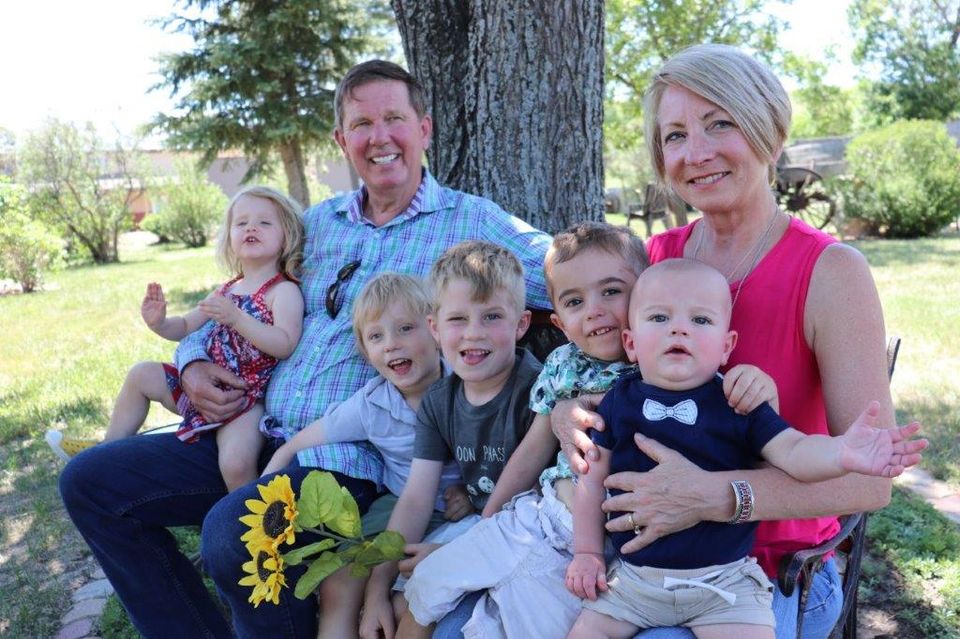
How to Create Connection, Community, and Collaboration to Expand Your Leadership Influence
In a leadership development context, we often talk about how vital it is to create connection, community, and collaboration in high-growth culture. Rarely do we talk about the opposite – loneliness. Yet, loneliness, driven by a highly mobile society that is addicted to our iPhones and social media likes, takes a huge toll on a person’s vitality and creativity.
Here’s how I introduce the topic in Chapter 22 (Relationship Wiring and Leadership) in Millennials Matter:
“There’s a prairie fire!” Dad exclaimed. I searched the horizon but saw only the sparking stars of Milky Way sprawling across the night sky. Mom and Dad instantly raced to our stash of rakes and gunnysacks. We hurriedly loaded them into the pickup, along with buckets of water. The loose gravel on the road was flying as we drove at high speed toward the fire. As we got closer, I could see the curling, gray smoke.
The wall of fire was leaping across our neighbor’s wheat field when we pulled up. Two dozen or more neighbors ferociously beat at the fire with their own water-soaked gunnysacks. Some were black with smoke and coughing. Exhausted, they kept fighting. Together we fought the raging fire. Thankfully, the rural fire department arrived before we collapsed from fatigue and smoke inhalation.
Even today, I’m amazed that my dad spotted the small speck of a fire in the distance when all I could see was blackness. How did he see it? He has eagle-eyed vision, and he knew that a prairie fire could be devastating to a whole community. To thrive, or even survive in these rural areas, we needed to be on the lookout for hazards that could devastate both our holdings as well as our neighbor’s property.
In light of this story, it’s interesting for me to consider – is loneliness a prairie fire that needs our leadership attention?
I’m curious about your thoughts on this article I found on the topic. Please feel free to reach out to me via email (Danita@DanitaBye.com) or phone (701-621-2331).
Title: Why Faith and Family Are the Cure for Loneliness
Publication: The Epoch Times
Author: Timothy S. Goeglein
Date: June, 4th 2023
A few weeks ago, the U.S. surgeon general issued an alarming report on the state of loneliness in America. While expressing great concern about the toll loneliness takes on a person’s mental health, the report goes on to ignore two of the best antidotes for curing the problem: family and faith.
According to the 2021 Current Population Survey’s Annual Social and Economic Supplement, the percentage of adults living with a spouse decreased to 50 percent from 52 percent over the previous decade, while the number of adults older than the age of 18 living alone increased to 37 million, up from 33 million in 2011—28 percent of all U.S. households.
The statistics get even more sobering: 34 percent of adults older than the age of 15 have never been married, compared to 23 percent in 1950; the estimated median age to marry is now 30.4 for men and 28.6 for women, up from 23.7 and 20.5 in 1947; and 17 percent of both men and women between the ages of 25 and 34 lived with an unmarried partner.
That’s just the marriage statistics. For the family, it becomes even more alarming. The number of families with their own children younger than age 18 living at home has declined to just 40 percent in 2021 from 48 percent in 2001. The actual share of the 130 million American 
When people live alone, they often lack connections, leading to loneliness, which can be deadly. In his book, “Loneliness,” University of Chicago professor John Cacioppo wrote that the negative health risks of living alone are far worse than air pollution or obesity. But one can’t make significant connections sitting behind a computer screen all day.
That’s why we can’t ignore the factors that faith and family play in keeping us connected so we aren’t a society made up of “all the lonely people,” as the Beatles once sang about in their song “Eleanor Rigby.”
First, it’s families that provide the vital social connections—a husband with his wife, parents with their children, parents with other parents, children with other children—that we all need to thrive. These relationships build upon each other, with the family serving as the foundation.
But there’s hope, and it isn’t too late to reverse the damage that has been wrought. That hope comes through faith and commitment, not government solutions. If we’re to become less lonely people, we must seek out those institutions—marriage, family, and faith—that make us more connected people.

Couple the loss of religion with broken marriages, latchkey children, and a society now glued more to its smartphones and tablets but with no meaningful connections elsewhere, and you have a recipe for isolation and depression.
Komisar concluded, “Loneliness is merely the symptom of society’s degradation of family structures, faith, and meaningful friendships.”
If we, as a nation, are serious about addressing/confronting loneliness and if we want to reduce youth suicide, the best manner to do this is through the strengthening of families, marriage, parenting, and the deepening of our faith, not ignoring these critical factors for our overall mental and spiritual health.
Through strengthening these institutions, I’m confident we’ll see personal restoration for those who are lonely. Most of all, instead of isolation and fragmentation, we’ll see community, hope, and unity as all come to live a life built on a solid foundation of faith and family. Our present epidemic of loneliness can be reversed if we return to focus on God and on others, instead of ourselves.
Views expressed in this article are the opinions of the author and do not necessarily reflect the views of The Epoch Times.
Let’s discuss a tailor-made interview to meet your audience’s needs.
Virtual speaking event? No problem!
Check out my Speaker page HERE.
To schedule, a call contact me at danita@danitabye.com



No Comments